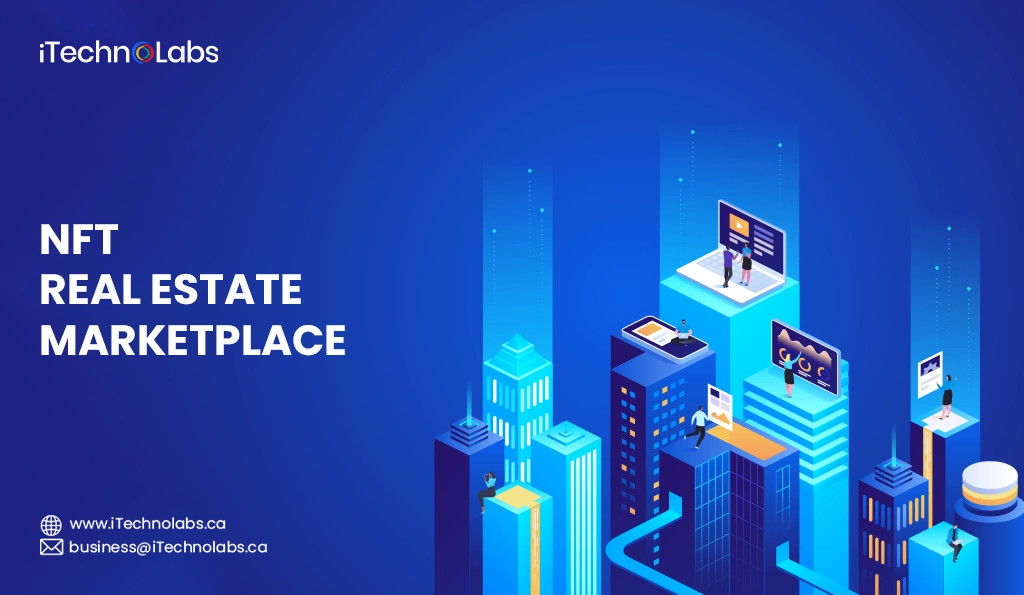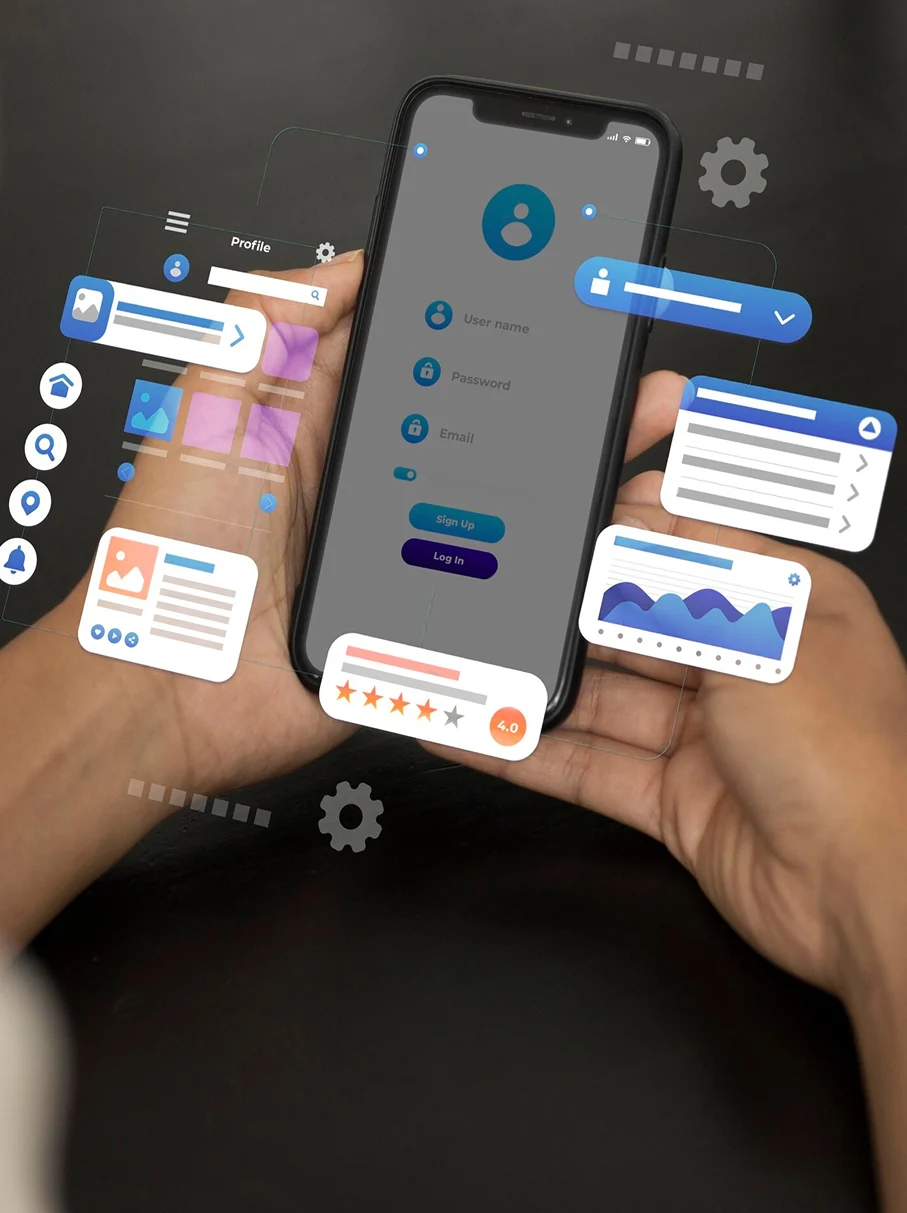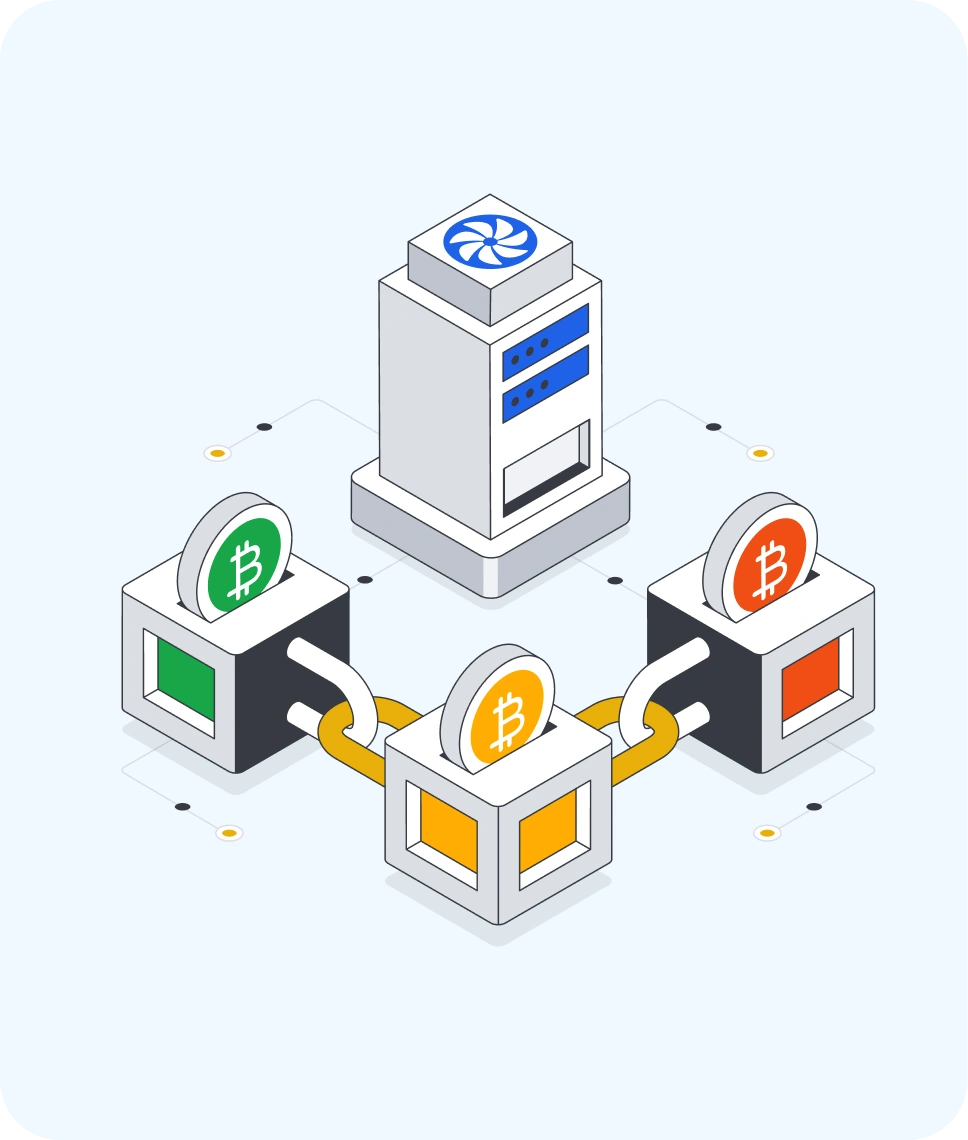The real estate sector is transforming, with NFT real estate marketplaces leading the shift. Imagine being able to buy, sell, or invest in properties. In a quick and seamless way via blockchain technology—no paperwork, no middlemen. These platforms tokenize both real and virtual estate, bringing transparency and wider access to property ownership. No matter whether you’re an investor looking to own a home or purely a fan of virtual land, NFT real estate marketplaces present exciting opportunities. So here’s a look at the top 15 NFT real estate marketplaces to follow in 2025!
What are Non-Fungible Tokens (NFTs)?
Non-fungible tokens are distinctive digital assets that live on a blockchain and recognize ownership for particular items—such as art, music, virtual land, or real estate. In comparison to Bitcoin or Ethereum, which are interchangeable, NFTs have some distinctive features that make them one and only.
To provide authenticity, transparency, and immutability for each NFT, blockchain technology is used. In the NFT real estate marketplace, these tokens are used to buy, sell, and trade digital or physical properties.Brokers and intermediaries are thus taking the backseat, while transactions between parties are coming to the front. Property ownership thus becomes more accessible. fractionalized, and efficient, using NFTs to catapult the traditional sector into a completely new reality. NFT revolutionized real estate investment, whether to purchase virtual or real-world land.
Pros and Cons of Real Estate NFT Marketplace
The NFT real estate marketplace is all set to change the paradigm in buying, selling, and investing in properties. Though it has a plethora of benefits, there are also certain challenges that one needs to think about. The following are the pros and cons neatly broken down.
Pros
- Fractional Ownership: Investors can buy a portion of a property, making real estate investment more accessible.
- Transparency & Security: Blockchain technology ensures secure, tamper-proof transactions with clear ownership records.
- Eliminates Middlemen: Reduces reliance on brokers, banks, and other intermediaries, lowering transaction costs.
- Global Access to Markets: Anyone from anywhere globally can buy or sell, making more investment opportunities available.
- Quick Transactions: Smart contracts eliminate paperwork and execute transactions quickly.
Cons
- Regulatory Uncertainty: Most nations have no clear legislation for NFT-real estate transactions.
- Market Volatility: NFT prices are subject to change, affecting stability in real estate investments.
- Limited Adoption: Institutional investors and traditional real estate investors remain slow to embrace NFT technology.
- Smart Contract Risks: Poorly written smart contract vulnerabilities might result in security breaches.
- Liquidity Concerns: Compared to traditional real estate markets, it could take longer to resell NFT property because there are fewer buyers.
In light of these risks, the NFT real estate market offers a new method for transforming property ownership into a more efficient and more open process.
How to Turn Real Estate into an NFT?
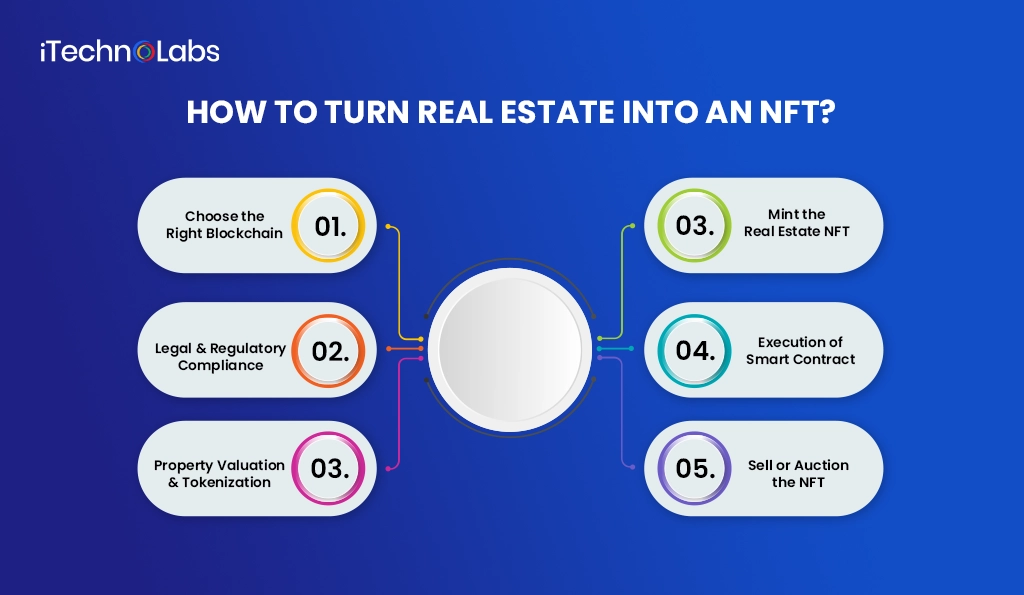
Converting real estate into an NFT requires tokenizing the property on a blockchain for safe and transparent ownership records. Here’s how you can do it:
Step 1: Choose the Right Blockchain
Select a blockchain that can facilitate NFT real estate transactions, i.e., Ethereum, Binance Smart Chain, or Solana. Polygon and Tezos also provide affordable options for minting NFTs at reduced gas fees.
Step 2: Legal & Regulatory Compliance
Make sure tokenizing your property meets local real estate and securities legislation. You can be required to get legal consent to transfer title through an NFT. Advising a legal professional in blockchain real estate is strongly advised.
Step 3: Property Valuation & Tokenization
Have your property valued to identify its market price. Then, choose to tokenize the property as one complete NFT or fractional ownership, whereby several investors would own a proportion of the property.
Step 4: Mint the Real Estate NFT
Use an NFT real estate marketplace such as Propy, RealT, or Lofty AI to list your property as an NFT. The NFT will contain all the property information, smart contract conditions, and rights of ownership.
Step 5: Execution of Smart Contract
A smart contract executes ownership transfer once the buyer has finished making the purchase. It also secures records on the blockchain to avoid fraud or conflict.
Step 6: Sell or Auction the NFT
Market your real estate NFT on a platform that will allow would-be buyers or investors to buy it. Platforms include direct selling capabilities as well as auctions that are designed to create the greatest sales potential.
By implementing these steps, you can successfully make a property into an NFT, facilitate smooth transactions, provide global investing potential, and increase liquidity for the NFT real estate market.
Top 15 NFT Real Estate Marketplaces to Follow
While the real estate market is embracing blockchain, NFT real estate marketplaces are disrupting property sales by providing fractional ownership, virtual property investments, and smart contract-enabled transactions. The following are the most prominent platforms taking the lead:
-
Decentraland

Founded: 2017
Founded By: Ari Meilich & Esteban Ordano
Decentraland is a metaverse platform where users can buy, sell, and further develop virtual land, which is represented in the form of NFTs. This metaverse platform is developed on the Ethereum blockchain and uses the MANA token as its native currency. Users can create environments that are compelling and interesting enough to host events and monetize their real estate with business-oriented ads for rent. Decentraland is a decentralized marketplace for digital commerce, gaming, and social networking, drawing brands and investors into the metaverse economy.
-
Polka City

Founded: 2021
Founded By: Carmelo Milian
Polka City is a metaverse supported by blockchain where users can invest in virtual properties like hotels, taxi services, and land lots. Developed using Ethereum and Polkadot, the platform is NFT-driven with passive returns through staking and yield farming. Users have the option of selling virtual assets on the market and engaging with a growing digital economy, creating a promising future for metaverse real estate investment.
-
SuperWorld

Founded: 2017
Founded By: Hrish Lotlikar & Max Woon
SuperWorld is an AR-enabled NFT real estate platform that allows users to purchase, sell, and build virtual properties projected on actual locations. Every parcel of land symbolizes a one-of-a-kind location in the physical world, and owners can earn from it with advertisements, virtual events, and gaming activities. Companies and content creators can pin digital assets on SuperWorld’s map, allowing easy convergence of physical and virtual real estate.
-
Cryptovoxels

Founded: 2018
Founded By: Ben Nolan
Cryptovoxels is a virtual real estate platform where users can buy land and construct digital buildings in a voxel-based metaverse. The Ethereum-based platform allows for NFT ownership, world economies, and social interactions. Owners can establish galleries, stores, and event venues, and it is thus a hub for digital art and trade. With easy-building tools and an engaged community, Cryptovoxels is still one of the most user-friendly metaverse real estate platforms.
-
Upland

Founded: 2018
Founded By: Dirk Lueth, Idan Zuckerman, & Mani Honigstein
Upland is a virtual property trading platform that marries blockchain and actual locations. The users can sell, buy, and exchange virtual properties linked to actual addresses. The play-to-earn mechanics of the game enable players to earn rewards, finish challenges, and participate in a robust virtual economy. Through partnerships and real-world integrations, Upland closes the gap between virtual assets and real-world real estate investments.
-
Somnium Space

Founded: 2017
Founded By: Artur Sychov
Somnium Space is a metaverse built on blockchain technology wherein users can purchase virtual land, construct buildings, and navigate through an immersive world in 3D. The platform is also completely compatible with VR technology to enable users to live in a digital economy through NFT-based land ownership, avatars, and digital tokens. Somnium Space was developed on the Ethereum and Solana platforms with monetization capability through rentals, ads, and play-to-earn mechanisms.
-
The Sandbox

Founded: 2011 (as a game), transitioned to blockchain in 2018
Founded By: Arthur Madrid & Sébastien Borget
The Sandbox is one of the best-known NFT real estate platforms, enabling users to purchase, build, and profit from virtual land as NFTs. Driven by the SAND token, users can build their own experiences, from games to social communities. The Sandbox has been invested in by major brands and celebrities and is a valuable digital real estate platform.
-
Omni-PSI

Founded: 2021
Founded By: Unspecified
Omni-PSI is a cutting-edge NFT real estate platform that bridges physical property investments with blockchain technology. By virtue of fractional ownership, investors can buy tokenized portions of upscale real estate holdings. Omni-PSI, which is built on Ethereum, provides secure and transparent transactions, opening up real estate investment to more people.
-
Fraction

Founded: 2021
Founded By: CEO – Calvin Cheng
Fraction uses NFTs on its decentralized real estate investment platform to support fractional real estate property ownership. Tokenizing assets lets the platform simplify the purchase and trading of real estate shares for investors. Fraction hopes to democratize property ownership by using blockchain-driven intelligent contracts and NFT technology to allow everyone access to real estate investments.
-
Propy

Founded: 2016
Founded By: Natalia Karayaneva
Using NFTs, Propy is a blockchain-based real estate platform designed to simplify the transaction of physical properties. Smart contracts simplify real estate deals, therefore guaranteeing openness and safety. Propy makes quick, efficient, and borderless transactions possible by tokenizing conventional property deeds, therefore lowering paperwork and obviating the intermediaries.
-
RealT

Founded: 2019
Founded By: Jean-Marc Jacobson & Remy Jacobson
RealT is a tokenized real estate investment platform through which users can own fractional interests in real-world properties as NFTs. Investors get rental payments in cryptocurrency, and real estate investing becomes more accessible. RealT, based on Ethereum, makes property ownership and management easier by facilitating direct blockchain-based transactions.
-
Vesta Equity

Founded: 2020
Founded By: Michael Carpentier & Imran Rahaman
Homeowners can transform their property equity into tradable tokens using Vesta Equity, an NFT-powered real estate financing platform. Using blockchain, the platform eliminates banks and lenders from the equation, hence enabling property owners to gain liquidity as investors buy shares of real estate assets. Transparent peer-to-peer transactions allow Vesta Equity to democratize real estate investment.
-
Landshare

Founded: 2021
Founded By: Unspecified
On the Binance Smart Chain, Landshare is a platform for tokenization of properties that lets investors purchase fractional real estate NFTs. It connects DeFi (Decentralized Finance) with standard real estate, providing passive income, staking, and yield farming possibilities via real estate holdings on blockchain.
-
Myco

Founded: 2022
Founded By: Unspecified
Myco is a new NFT real estate platform that specializes in sustainable and environmentally friendly properties. Utilizing blockchain technology, Myco enables customers to invest in green housing schemes and tokenized land with great focus on sustainability and energy efficiency.
-
AqarChain

Founded: 2021
Founded By: Waqas Nakhwa
Using NFTs, AqarChain is a blockchain-driven real estate investment platform that lets users purchase, market, and swap fractional ownership of real estate assets. Using smart contracts and tokenized real estate assets, the platform offers a smooth investment experience and guarantees fast and clear transactions.
Comparison of Top 15 NFT Real Estate Marketplaces
| Marketplace | Blockchain | Key Features |
| Decentraland | Ethereum |
|
| Polka City | Polkadot |
|
| SuperWorld | Ethereum |
|
| Cryptovoxels | Ethereum |
|
| Upland | EOS |
|
| Somnium Space | Ethereum, Solana, Polygon |
|
| The Sandbox | Ethereum, Polygon |
|
| Omni-PSI | Ethereum |
|
| Fraction | Ethereum |
|
| Propy | Ethereum |
|
| RealT | Ethereum |
|
| Vesta Equity | Algorand |
|
| Landshare | Binance Smart Chain |
|
| Myco | Unspecified |
|
| AqarChain | Ethereum |
|
This table highlights the key differences between the top NFT real estate marketplaces, covering their founding details, blockchain networks, and unique offerings.
Most Reputable NFT Marketplaces
When choosing an NFT marketplace, reputation and security are crucial. Here are some of the most reputable NFT marketplaces known for their credibility, security, and user base:
- OpenSea: The largest NFT marketplace, supporting multiple blockchains like Ethereum, Polygon, and Solana with a vast collection of digital assets.
- Rarible: A decentralized marketplace with multi-chain support, allowing users to create, buy, and sell NFTs.
- SuperRare: A premium marketplace focused on high-end, curated digital art NFTs.
- Foundation: A community-driven marketplace featuring exclusive digital art collections.
- Nifty Gateway: A well-known platform for celebrity- and brand-endorsed NFT drops.
Each marketplace has unique features, offering a secure environment for trading NFTs.
How to Buy an NFT on a Marketplace?
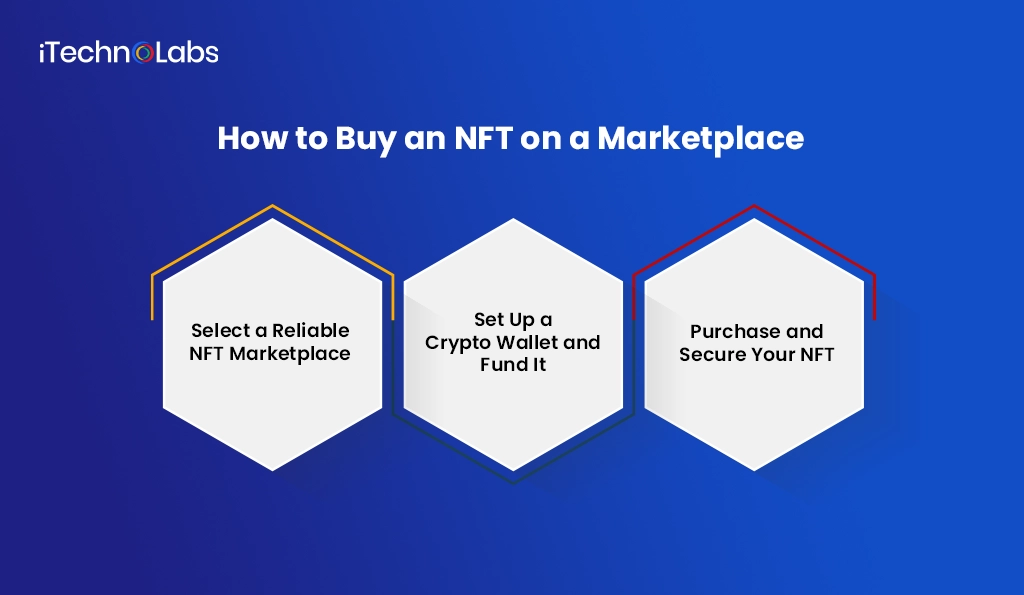
-
Select a Reliable NFT Marketplace
Choosing the right platform is crucial. Marketplaces like OpenSea, Rarible, and Foundation cater to different NFT types, from digital art to virtual real estate. Ensure the marketplace supports your blockchain network (Ethereum, Solana, or Polygon). Research the platform’s reputation, fees, and security features before creating an account and connecting your crypto wallet.
-
Set Up a Crypto Wallet and Fund It
To buy an NFT, first you will need a digital wallet like Metamask or Phantom. First create and secure your wallet. Next, you will need to buy some cryptocurrency – ETH, SOL, or MATIC – on a reputable exchange, such as Binance or Coinbase. Move the coins into this wallet, but make sure to leave some coins remaining for transaction fees and to purchase your NFT.
-
Purchase and Secure Your NFT
Next, once the wallet is set up, search through your favorite marketplace for the NFT that interests you. Before you purchase the NFT, you should check to confirm it is authentic, the ownership history, and the metadata. Then, click “Buy Now” or place a bid. After confirming your purchase through your wallet, your NFT is now in your wallet and ready to display, trade, or resell on other platforms.
Also, read: What is an API? Meaning, Types, Uses & Examples
How Much Does It Cost to Build an NFT Marketplace?
Costs to build an NFT marketplace depend on the following items: features, complexity of the platform, blockchain integration, and the authentication mechanisms required for security. Generally speaking, you may see that the costs of developing an NFT marketplace may vary between $30,000 and $500,000 with many variations on the customizations you require and whether you use pre-built solutions or custom development.
Factors Affecting the Cost of NFT Marketplace Development
| Factor | Impact on Cost | Estimated Cost Range |
| Blockchain Selection | The choice of blockchain (Ethereum, Solana, Polygon, etc.) affects development and gas fees. | $10,000 – $100,000 |
| Development Approach | Custom development is more expensive than using white-label solutions. | $50,000 – $500,000 |
| Smart Contracts | Creating and auditing secure smart contracts requires skilled blockchain developers. | $5,000 – $50,000 |
| User Interface (UI/UX) | A visually appealing and intuitive UI/UX design increases user engagement. | $10,000 – $50,000 |
| Security Features | Advanced security (KYC, 2FA, encryption) adds to development costs. | $5,000 – $50,000 |
| Token Standards | Implementing ERC-721, ERC-1155, or other NFT standards impacts costs. | $5,000 – $20,000 |
| Wallet Integration | Supporting multiple crypto wallets like MetaMask and Phantom increases flexibility. | $5,000 – $30,000 |
| Marketplaces Features | Auction systems, minting, bidding, and royalty payments require advanced coding. | $10,000 – $100,000 |
| Maintenance & Updates | Regular updates and security patches are necessary for smooth operation. | $10,000 – $50,000/year |
The costs of building an NFT marketplace can be variable based on features and blockchain used. Though you may spend less on pre-built solutions, an NFT marketplace that is custom-built can provide you with more flexibility and scalability. Businesses should certainly consider their desires and constraints before spending money on development for an NFT marketplace.
How Do I Use an NFT Marketplace?
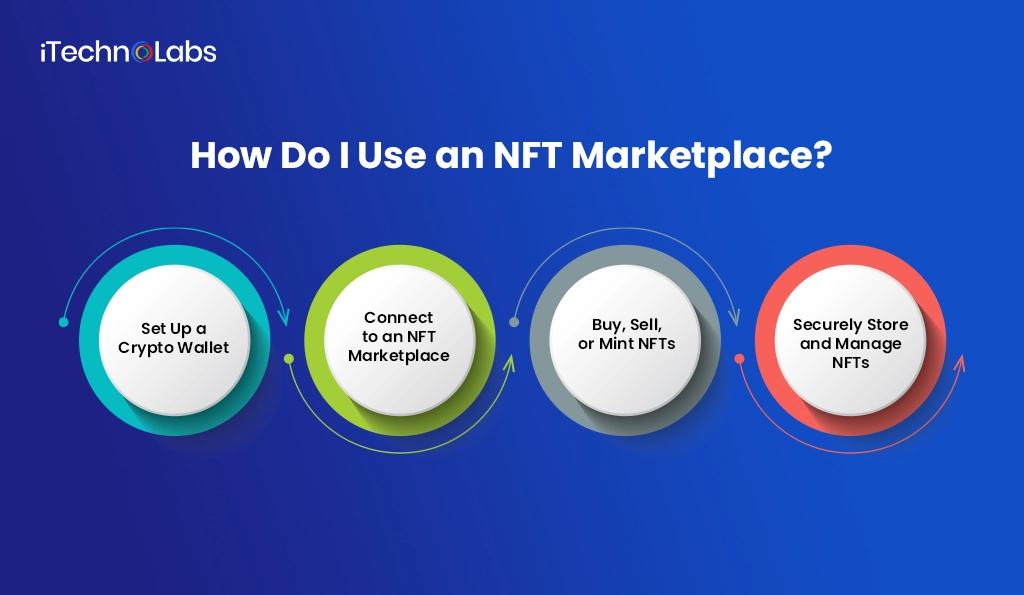
To interact with an NFT marketplace, the steps are fairly simple: set up a wallet, and you can buy, sell, or mint whatever NFTs you want. Here are the steps you can take to successfully utilize an NFT marketplace.
1. Set Up a Crypto Wallet
First, in order to interact with any NFT marketplace, you are going to need to get a cryptocurrency wallet that supports NFTs. Some of the most popular wallets are MetaMask, Phantom, and Trust Wallet. After you install the wallet, make sure that you fund it with the cryptocurrency you will require (for example, ETH for Ethereum-based marketplaces or SOL for Solana.) You are going to want to make sure you have enough to pay for the transactions and gas fees.
2. Connect to an NFT Marketplace
Next, you should visit an NFT marketplace such as OpenSea, Rarible, or Magic Eden and connect your wallet. Most NFT marketplaces will have a button that says “Connect Wallet.” This should allow you to authenticate your wallet connection and view NFT listings available within marketplaces. When you connect to your wallet, be sure you choose the correct network, whether it is Ethereum, Solana, Polygon, etc., as this is typically based on the blockchain the marketplace supports.
3. Buy, Sell, or Mint NFTs
- Buying an NFT: Purchasing an NFT, typically involves reviewing a collection, for example, participating in an auction, bidding on the NFT, or immediately purchasing a fixed-price NFT. The NFT will appear in your crypto wallet once you confirm the transaction.
- Selling an NFT: To sell the NFT, list your NFTs, putting them up for sale, set a price, or auction it and then confirm the transaction in your wallet.
- Minting an NFT: Some NFT marketplaces allow you to mint your own NFT by uploading your digital content and entering the metadata to sell it on the marketplace.
4. Securely Store and Manage NFTs
When you purchase any NFT, the NFTs will be transferred to your crypto wallet. You can hold onto your NFTs, sell them, or transfer them however you like. Be sure to ensure you have a secure marketplace and don’t be victimized by phishing or scam strategies that could put your digital assets at risk.
Suggested Article: A Key Difference Between Flutter vs Android Studio 2025
Conclusion
The NFT real estate marketplace is shifting the property ownership market with a new way to transact in an open, secure, transparent, and decentralized way. These real estate marketplace platforms provide access to all forms of real estate investing, including virtual land and tokenization of physical property. As the NFT real estate marketplace evolves and expands, stay informed of emerging marketplaces and industry developments and trends to seize opportunities in the digital economy.
FAQs
1. What is NFT in real estate?
NFTs are representations of ownership rights to the blockchain for either physical or virtual properties. NFTs can represent proof of ownership, facilitate transactions, and allow for fractional ownership. The use of smart contracts means an NFT real estate marketplace can eliminate middlemen, save on costs, and provide transparency within the process of purchasing, selling or leasing real estate assets.
2. Is the NFT marketplace profitable?
Yes, an NFT marketplace can be profitable by virtue of the adoption rate, transaction volume, and marketplace fees for transacting on the marketplace. Profits will be made in the form of listing fees, transaction commissions and having premium features on the marketplace. However, being profitable as a marketplace will depend on multiple factors such as security, user experience, fees and demand, and continued innovation and marketing for increased exposure and user adoption are key.
3. How to create NFT real estate?
The process of creating an NFT for real estate involves digitizing the asset, then minting the NFT on a blockchain. Next, choose a blockchain to mint your NFT with – both Ethereum and Solana make good options. You will then create smart contracts, and list your NFT on an NFT real estate marketplace. Ensure that your NFT complies with existing legal frameworks, and create a tokenomics plan on how ownership will be distributed or revenue will be shared.

